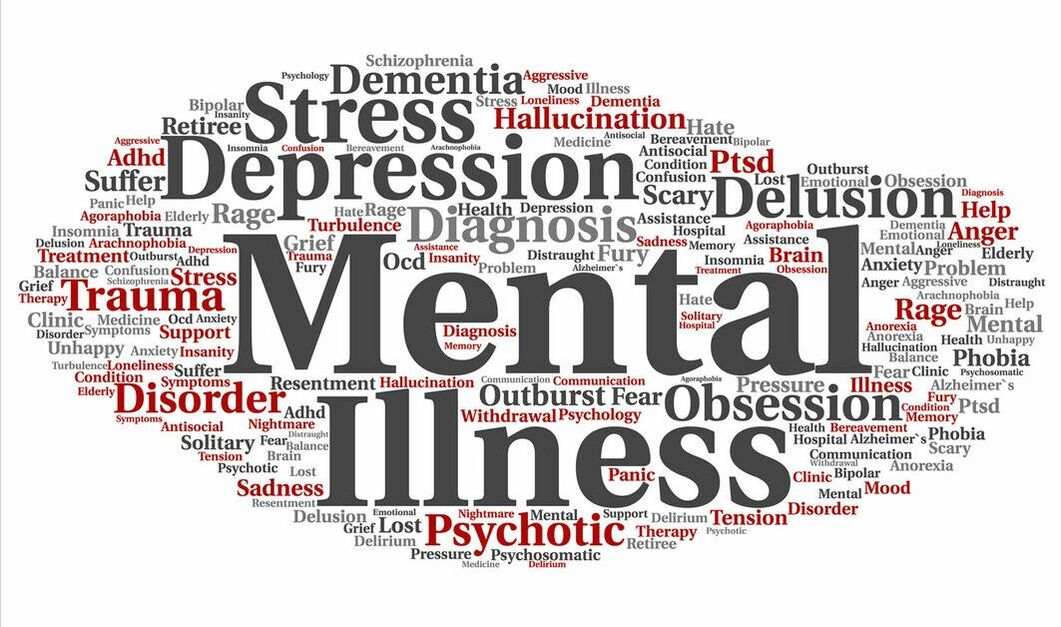Treatment IssuesDepressionDepression is a serious, but common, condition. It often causes people to feel sad or empty for long periods of time. It can also affect one’s thinking patterns and physical health. In some cases, depression can lead people to consider suicide. Depression is the most common cause of disability in the United States. One in 10 adults report experiencing it. Most people have their first bout of depression in their late teens or early twenties. Depression’s symptoms can vary from person to person. Someone’s gender, culture, or age may change how they experience depression. Yet most forms of depression include these common symptoms:
A person with depression likely has trouble dealing with daily stresses. Sometimes the simplest activities—getting out of bed, bathing, and dressing—can feel impossible. Such struggles might make people feel helpless or alone. Even when something good happens, depression can cast a cloud of negativity over the experience. People with depression often feel anger, shame, and irritation. Sometimes these emotions can show up in the body as aches or nausea. These feelings can also lead to weepiness. Other times, depression causes people to feel emotionally “numb.” It is common for people to feel as if they never have energy. In severe cases, a person may not care if they live or die. There are many myths surrounding therapy. Though it is important to know what depression is, it can be equally important to know what depression is not. Depression is not simple sadness. Most people get upset when life doesn’t go their way. But someone with depression can feel so bad they struggle to do everyday activities like eat or bathe. To count as depression, the sadness must be a constant, long-lasting feeling. Depression is not a sign of weakness. Although depression can sap one’s energy or motivation, having the condition does not meant one is lazy. In fact, many people with depression put forth double the effort to simply get through their day. Depression is not forever. People with depression can feel hopeless about recovery, especially if they’ve had the condition for a long time. Yet most forms of depression are very treatable. There are many therapies I use to treat depressive symptoms. Depression can be caused by one’s body or one’s circumstances. Sometimes it can be caused by a mixture of both. Most mental health experts agree brain chemistry plays a major role in depression. The brain has chemicals called dopamine and serotonin. These chemicals affect our ability to feel pleasure and well-being. If the brain does not make enough of these chemicals, or if it doesn’t process them right, depression can result. But no person is an island. Just as brain chemistry can affect life, life can cause changes in the brain. Any stressful or traumatic event can contribute to depression. Common triggers include divorce, financial instability, chronic illness, social isolation, bullying, and domestic violence. Depression is not to be confused for the typical mourning process. Grief after loss is normal, and it usually fades over time. One’s sadness or guilt is often limited to thoughts of the deceased. But depression’s symptoms tend to be persistent and less tied to any specific thought. Depression is diagnosed more often in women than in men. Some researchers guess this is because men are less likely to seek treatment. Some men believe talking about their feelings would make them look “weak” or “unmanly,” so they avoid therapy. Researchers also believe men are diagnosed less because their symptoms look different. Men with depression are more likely to show anger than sadness. They tend to have more sleep difficulties and fatigue symptoms than women. Men often cope through escapist behaviors like binge drinking or sexual affairs. Women with depression are more likely to attempt suicide. Around 2% of children ages 6-12 have depression. That rate jumps to around 7% for teenagers. Estimates say up to 60% of youth with depression are not getting treatment. Some children may inherit abnormalities in brain chemistry from their parents. These abnormalities could make kids more likely to share their parents’ depression. If an adult’s depression affects their parenting, the child may learn certain behaviors and attitudes. They may develop depression as a response to stress. Depression doesn’t simply affect the individual—it can also impact that person’s loved ones. Supporting a person with depression can be difficult. The person may not accept comfort, claiming they do not deserve love. Symptoms of lethargy or irritability can put further strain on a relationship. Loved ones may feel frustrated or confused when their support does not “cure” the depression. A therapist can help loved ones learn how to best support the individual with depression. Individual therapy can be a safe space for loved ones to privately sort through their own feelings. Romantic partners may consider couples counseling. Parents and children can try family therapy. Depression is a very treatable condition. Remember, you don’t need to be in a crisis to get help. If you suffer from depression and it’s impacting your quality of life, please contact me at 415-454-8931 or [email protected] |
If you like what you have read, and you think I could help, please call or email me for a free consultation at 415-454-8931 or [email protected] |
